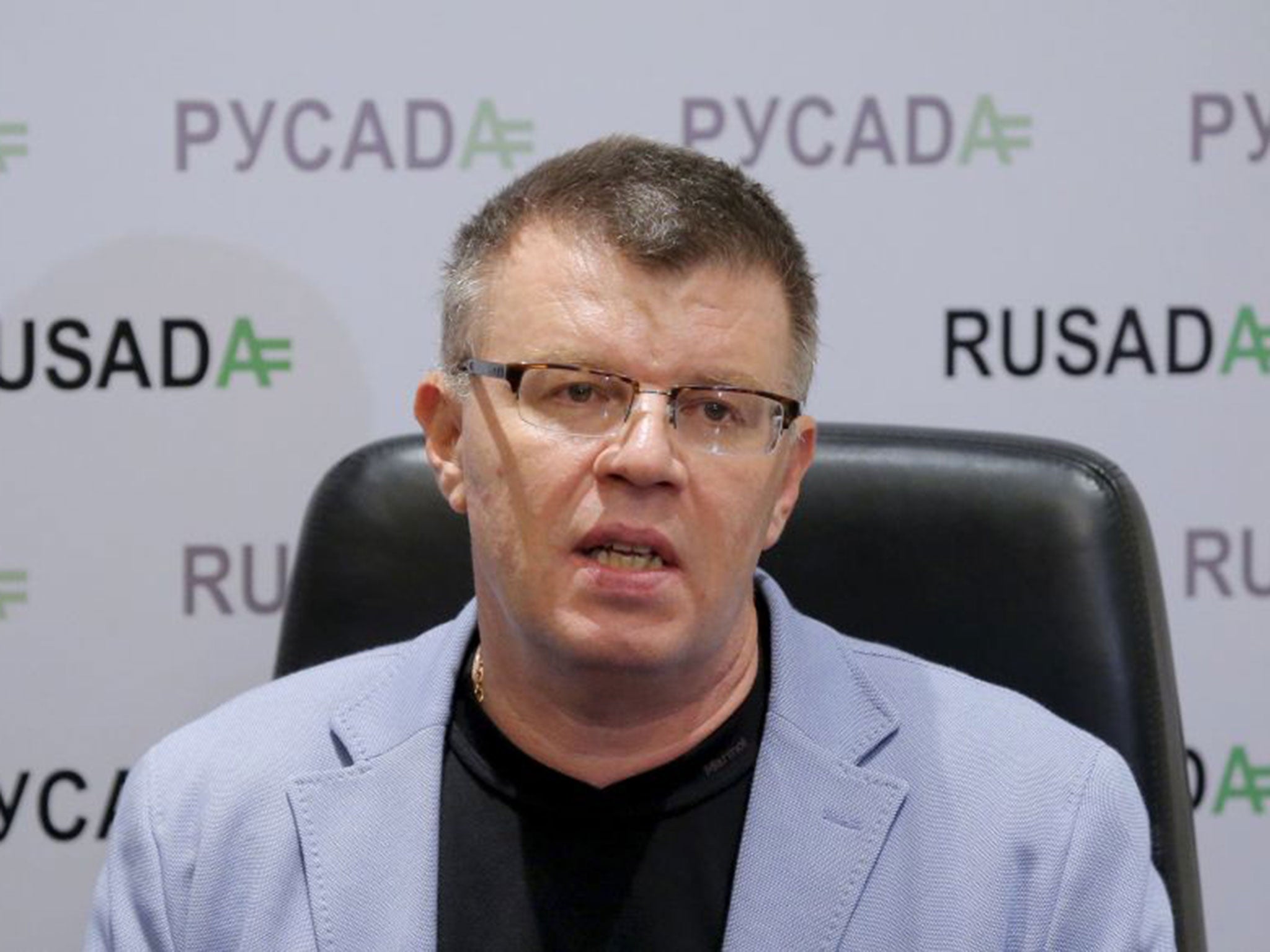Nikita Kamayev: Former chief of Russia anti-doping agency dies unexpectedly two months after resignation
Rusada confirms 52-year-old suffered 'massive heart attack' at his home on Sunday after cross-country skiing

Your support helps us to tell the story
From reproductive rights to climate change to Big Tech, The Independent is on the ground when the story is developing. Whether it's investigating the financials of Elon Musk's pro-Trump PAC or producing our latest documentary, 'The A Word', which shines a light on the American women fighting for reproductive rights, we know how important it is to parse out the facts from the messaging.
At such a critical moment in US history, we need reporters on the ground. Your donation allows us to keep sending journalists to speak to both sides of the story.
The Independent is trusted by Americans across the entire political spectrum. And unlike many other quality news outlets, we choose not to lock Americans out of our reporting and analysis with paywalls. We believe quality journalism should be available to everyone, paid for by those who can afford it.
Your support makes all the difference.The former head of Russia’s federal anti-doping agency, Rusada, has died unexpectedly, two months after resigning from his post following a doping scandal involving Russian athletes. He was the second senior Rusada official to die this month.
Nikita Kamayev, 52, suffered a “massive heart attack” at his home on Sunday after cross-country skiing, Rusada has confirmed.
“It’s a very unexpected death,” the Russian Sport Minister, Vitaly Mutko, told Russia’s R-Sport agency. “The man seemed healthy and everything was fine.”
Vyacheslav Sinev, the agency’s general director until 2010, died on 3 February. The cause of his death is unknown.
Anna Antseliovich, the acting head of Rusada, told R-Sport that during the five years Mr Kamayev had spent working at the agency, “he had never complained of heart problems and wasn’t sick”.
The former general director of Rusada, Ramil Khabriyev, told Russian news agency Tass that Kamayev had complained of heartache after a skiing session. “He had never complained of heart problems, at least not to me. Maybe his wife knew about such problems,” Mr Khabriyev said,
Mr Khabriyev resigned at the same time as Kamayev and a number of other senior executives in December last year, four weeks after the World Anti-Doping Agency (Wada) released a damning 323-page report that accused Russia of widespread corruption and state-backed cheating system in international sporting events.
The report alleged that Russian trainers, coaches, doctors and even Russian anti-doping officials were complicit in warning athletes ahead of surprise tests, covering up failed test results and helping athletes acquire illicit performance-enhancing drugs.
The revelations triggered the International Association of Athletics Federation to indefinitely suspend Russia from participating in all competitions.
Join our commenting forum
Join thought-provoking conversations, follow other Independent readers and see their replies
Comments